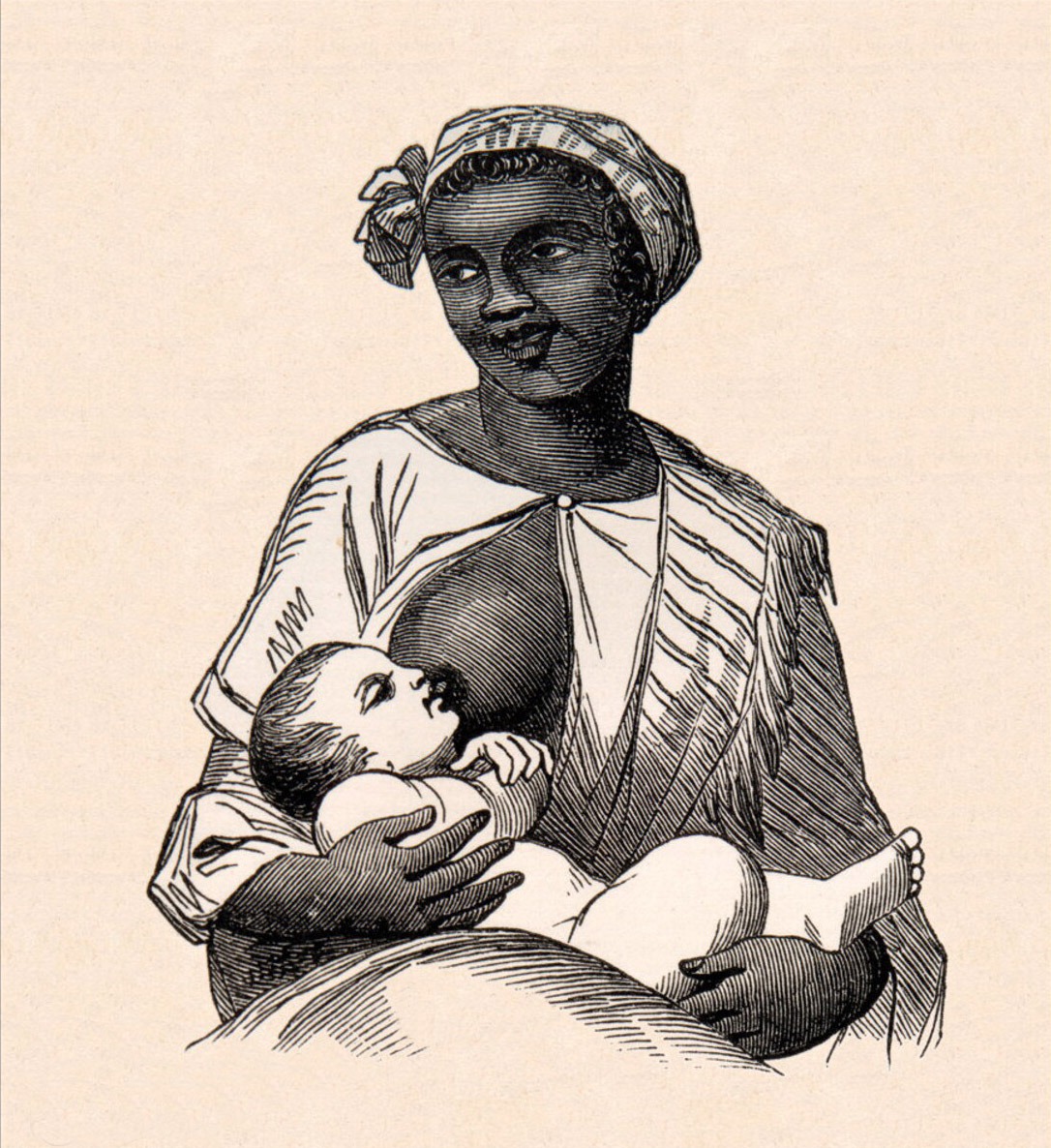Analysing slavery through the lens of gender and status leads us to ask questions concerning relations between enslaved and free women.
This article, a homage to Léocadie, wetnurse for Mélanie, Ombline Desbassayns’ daughter, draws parallels between the family history and destiny of two women over half a century.
The first, from a dynasty of slaves essentially of Indian and Africans descent going back to 1690, worked as a servant for the second, a true symbol of slave-owning power.
The life histories were marked by their childhood, then, on becoming adults, by their role as wife, mother, and grandmother. The specific characteristics of the link between these two women resides in the question of breastfeeding and the relationship between black nurses and white children, involving Léocadie’s family and most of Ombline’s children.

While the close links between the babies and wet-nurses appear obvious here, the same cannot be said for links between white and black women.
“I have given Léocadie to Mélanie”; this declaration, recorded in 1807 in Ombline’s first will, reflects the relations between these two women. Léocadie has been ‘given’ to Mélanie to be her servant during a long voyage to a village in the region of Toulouse, a true exile. Here, she ‘died of exhaustion’ in 1809, without being able to see for the last time her children, her husband, and her native island.
While the function of wet-nurse implies a certain promiscuity between these two women, as well as Léocadie being constantly available, complicity of gender at no time prevails over the difference of status.